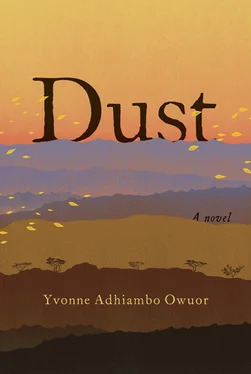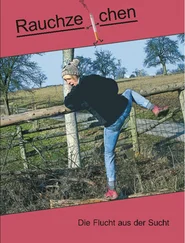“Dismissed,” Mrs. Karai snarled.
They had left the office hand in hand. They had dodged each other’s eyes. Later, they focused on study. Ajany learned to paint, covered shame with vivid colors. Books revealed destinations. Huskies in Alaska, pumpkins that become footmen, genteel princes, knights of round tables, and agreeable kings who oversaw holy order. Atlases were a favorite; anything could be imagined to happen between the lines and curves of a journey.
Odidi became a grade-three piano student within a year.
“Come. Li sten. Li sten. Ajany!”
Music and painting bandaged soul-holes.
They forgot teachers whose lip-curling mouths asked, “ Ati , from where? Is it on the map?” Drowned out classmates: “You people cook dust to eat.” Music and painting canceled memories of annual February humiliations when news stories of northern land famines arrived with portraits of emaciated, breast-baring, adorned citizens, and skeletons of livestock. They suffered a flurry of “School Walks” and “Give Your Change, Save a Life” and “Help the Poor Starving People of Northern Kenya” picnics. Ajany, being a useful facsimile for the occasion — reed-thin, small, dark, bushy-haired, with large slanted eyes — was thrust to the school stage to slump over one end of a massive cardboard of a bank check for newsletter photo shoots. Odidi would sit in the audience with eyes shut, dreaming about end of term, when the blessed migration from this Kenya to theirs, via Nairobi, occurred. Nairobi was the oasis where he and Ajany boarded a dilapidated green holiday bus shaped like a triangular loaf and shuttled along ramshackle roads to the trading center. Sometimes they walked; most of the time they got a ride close to Wuoth Ogik, where they purged school from their hearts.
After the red cave, life at school for Odidi and Ajany changed. Odidi acquired bulk, merged it with fury, and, after joining the rugby team, transformed the school’s game. In the second season, when the opponents’ defense tried to take the ball from him, he broke three sets of teeth and converted twelve tries. Their school, former perennial failures, became School Rugby Cup contenders. In the created songs of worship for their new hero —Shifta! The Winger ! — Odidi found belonging, and Ajany, reflecting Odidi’s glory, was at last left in peace.
Years later, Odidi would command Ajany, “Choose.” She did. She left Kenya. He had stayed. To live out a belonging to which he had become accustomed.
Lying on the tarmac, Odidi connects meaning to sounds he hears: a tire squeal, a slammed door, cut-off words, ricochet shouts of once-alive friends. They are where they are because of a green Toyota Prado of which they had tried to relieve its current owner. Wasn’t stealing. It had been Odidi’s car. He’d bought it, cash. It had been swiped from him. He was just taking it back. He and the car’s current driver had once been friends. Schoolmates, business partners, drinking and whoring buddies who had chosen the green car for Odidi to celebrate a life-changing deal gone through. The friend had opted for a brown Jaguar. A few years later, contracts shattered, he was driving Odidi’s car. This job was supposed to be easy: stealing from a thief.
When Odidi had told Justina that he was going to take his green car back and give it to her, Justina had begged, “Odi-Ebe, please — why not buy another one?”
He had snapped, “This one’s mine.”
Justina had placed both her hands over her bulging stomach. “I’m scared.”
He had laughed at her, seized her, and lifted her up. She had looked down at him. He had watched her until she managed a smile, the way she always did. “A kawaida job like this?” he had whispered as he lowered her. “It’s Odidi.” And finally she had giggled. This last job was supposed to have been easy.
After this he would marry Justina.
Restart destiny.
He would also find the courage to climb into an airplane. It was time to visit his sister in Brazil. There was so much to say and do. This job should have been so easy. Except, after Odidi and his team had struck, and he had been about to drive off in the car, a police execution squad was waiting for them.
Voices.
More cars.
Whirring of a camera.
Bright light.
Murmurs.
Then.
Five, four, three, two, one, action! A voice, gravelly, pompous, and familiar: “Our mbrave mboys returned fire for fire. Two of our men are wounded. The gang leader mocked us. Threw abuse. Our mbrave mboys gave chase. The climinals fred on foot. We persisted. We forrowed for two kirometers .…”
Odidi listens.
“The climinals moved with the plecision of rocusts . They swarmed their targets. They have been stearing , conning, and dismantring vehicles. Have executed bank rombberies, mundered poricemen , and escaped with ninety mirrion shirrings .”
Shit!
Odidi understood.
A setup.
The Officer Commanding Police Division, whom they paid every month to look away, and who on three occasions had hired out his gun to the gang, had just sacrificed them.
Sorrow is a universe.
Guilt.
Shame at being fooled. It contains fear because there is no one who will hear what he needs to say.
Such is loneliness.
Tears.
Electric chill-pain.
Odidi shivers.
Blood.
What’s happening to me?
Then.
Someone is breathing over him.
Warmth. A voice: “I’ve looked for you, boy.”
Odidi opens his mouth. Baba? No sound.
The voice: “I’m here.”
Odidi tries to shift toward the presence.
Wants to say, Didn’t rob any bank .
Attempts a grin. Knew you’d find me .
But it is simpler to allow life its rolling sensations.
Above Odidi, the night. Blurred intimacy of twinkling white stars; watching Kormamaddo, the bull camel of the waters.
What’s happening to me?
A voice says, “Close your eyes, boy. Go to sleep.”
Odidi coughs three times.
Red bubbles spatter.
The voice says, “I’m here.”
Odidi breathes in.
Doesn’t breathe out.
Becomes still.
The six-foot-tall, professorial, gray-haired, bespectacled man, a high-level plainclothes policeman wearing a nondescript, now bloodied black suit and black shoes, will wait nine minutes to retrieve the pistol strapped to Odidi’s chest and a bullet-pierced cell phone. With a tiny, delicate movement, he will pocket these. A squashed scarlet Sportsman cigarette packet with two cigarettes rustles in his shirt pocket. He reaches for one, reconsiders. He can endure, and has endured, the cocktail of stench: blood, shit, gun smoke, and rotten water from a nearby open drain. Eyes empty, he hunkers down. Hand to cheek, he thinks of Nyipir Oganda, the boy’s father, while his stained fingers dislodge his bifocals, which then rest crooked on his large nose. He stares into nothing.
HERE. SHE COULD PAINT THIS; HOLD THE BRUSH AS A STABBING knife. There. Coloring in landscapes of loss. She could draw this for him, this longing to hear his particular voice, listening for echoes of bloodied footsteps, borrowing dead eyes to help her find him again. Here. Jagged precipices of wounding, and over cliffs, an immense waterfall of yearning, falling and falling into nothingness.
Her father, Aggrey Nyipir Oganda, is a slender, dark stone statue in front of her. Only his eyes roam spaces, taking everything in, the emptiness, too. Eyes reddened and popping out, shadowy tear streaks on an ebony face. His old policeman posture is intact. Straight, stiff, steady, he is old-world dapper in a slightly shabby 1970s coat and 1950s brown leather fedora. Tinged with the gray of age, clandestine wrinkles congregate at the corners of his eyes. As with so many men of Kenya from his time, his manner is genteel English colonial stranded in time’s paradoxes.
Читать дальше











